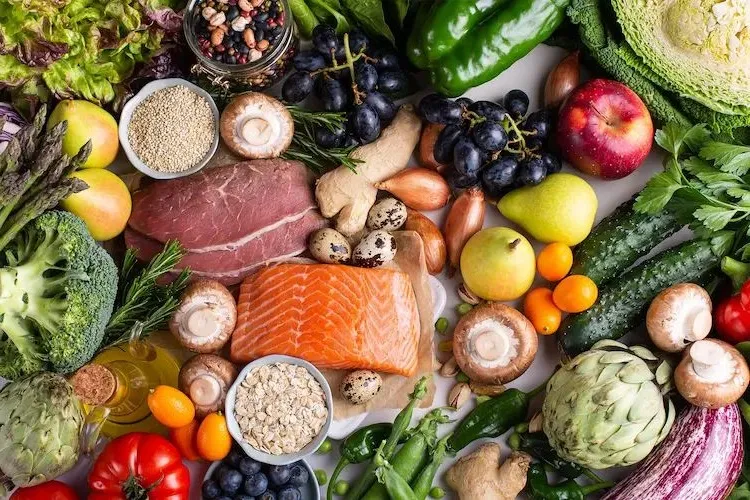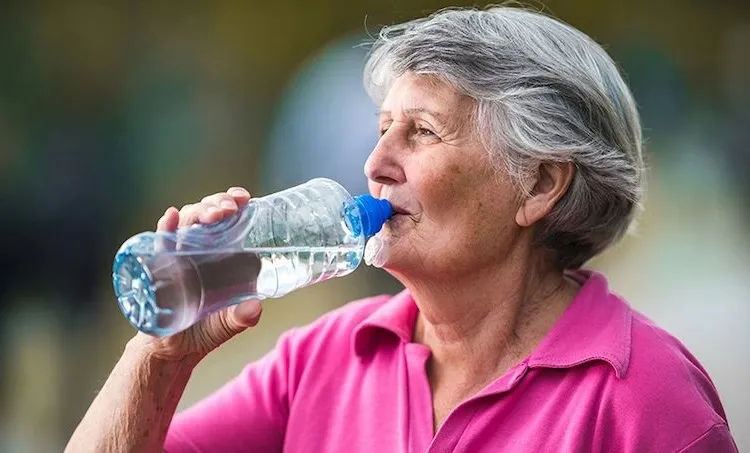Calorie and nutrient needs vary with age. In particular, nutrition after the age of 60 can look a little different, as seniors need fewer calories but more vitamins and minerals. One thing is for sure, you have to maintain the right diet to stay healthy and strong. You can learn from this article what is important for a healthy diet after 60!
As we turn 60, it is important to support heart and brain health with the daily foods we eat. After a certain age, appetite may decrease. Therefore, care should be taken to ensure that the necessary nutrients are absorbed. We provide important information on proper nutrition for seniors over 60. Follow our tips!
Why Do Nutrient Requirements Change with Age?
Even if you’ve kept a healthy diet throughout your life and maintained an appropriate weight, there are certain physical changes after the age of 60 that you should be aware of.
- Metabolism slows down a little more every year and muscle mass is lost.
- You will burn fewer calories if you lead a more sedentary lifestyle.
- After menopause, fat deposits can form around the waist in women.
How Should One’s Diet Change After the Age of 60?
Here we share the basic tips that you should follow for a healthy diet after 60. Which nutrients do you need the most, and which foods provide your body with them?
- Amino acids are particularly important as age progresses. High-quality protein sources like fatty fish such as salmon, eggs and dairy products provide essential amino acids. Oily fish is valuable in that it also affects inflammatory processes in the body. Choose protein-rich breakfast options to start the day right. Nutritionists recommend that after the age of 60, at least 1.2 g of protein per kilogram of body weight should be consumed per day. It’s a good idea to give your body a protein-rich breakfast first thing in the morning – for example, an omelette with half a slice of whole grain bread and a glass of apple cider.
- Another important nutrient to prioritize is fibre. What is fibre used for? It has been proven to reduce the risk of developing heart disease and diabetes. Look for a variety of fibre sources such as raspberries, leafy greens, chia seeds, flax seeds, porridge, chickpeas and quinoa.
- Calcium and vitamin D intake is exceptionally important to optimize bone health, which is particularly important in this age group. Consume dairy products as they are a good source of calcium and vitamin D. There are also many other foods that are rich in calcium such as broccoli, cooked leafy vegetables, beans and chia seeds. Oily fish like salmon and mackerel are also good sources of vitamin D.
- Vegetables and fruits are rich in vitamins, trace elements and salts, which are in short supply in the ageing organism. Cellulose has a positive effect on the work of the stomach. According to some researchers, it serves as a prevention against certain types of cancer.
- You must consume enough iron, otherwise you may become deficient. In addition to red meat, eggs and fish, the following foods contain iron: cocoa, spinach, kale, Chinese cabbage, sesame seeds, cashews and raspberries.
- Magnesium is another important nutrient for various processes in the body, including muscle and nerve function and blood pressure. Foods containing magnesium that should be included in your diet after the age of 60 include almonds, dates and sunflower seeds, as well as spinach, black beans, bananas and poultry.
Healthy Eating After 60: Which Foods Should You Avoid?
At this age, an important goal is to avoid the development of arteriosclerosis by all means, since it is the cause of almost all the so-called “diseases of old age”: high blood pressure, angina pectoris and, for those at immediate risk, stroke and heart attack. Avoid products rich in cholesterol – liver, fatty meat, egg yolks – and include more beef, chicken and fish in your diet. Because of the increase in cholesterol levels, you should not overdo it with butter and cream. It is good to season salads with vegetable fat.
Fluid accumulation in the body (and therefore edema) and increased blood pressure (and therefore hypertension) are related to the excessive amount of sodium ions that our body absorbs from table salt. Therefore, you should not add excess salt to your food. If you don’t like the taste, salt can be replaced with other spices or lemon juice.
If you’re over 60, you shouldn’t overdo it with sugar. Older people should reduce sugar consumption to prevent the formation of cholesterol in the blood.
Also read: How to Stay Fit After 60 Without Going to the Gym? Simple Exercises with Great Effect
Sufficient Water Supply Is Essential
Of course, we must not forget about hydration. Adequate fluid intake is necessary at any age. Especially as we get older, it is really important to drink enough fluids. Adequate water intake is necessary for intestinal and kidney function, which helps you to go to the toilet as often as necessary and prevent urinary tract infections, kidney stones and other problems.






